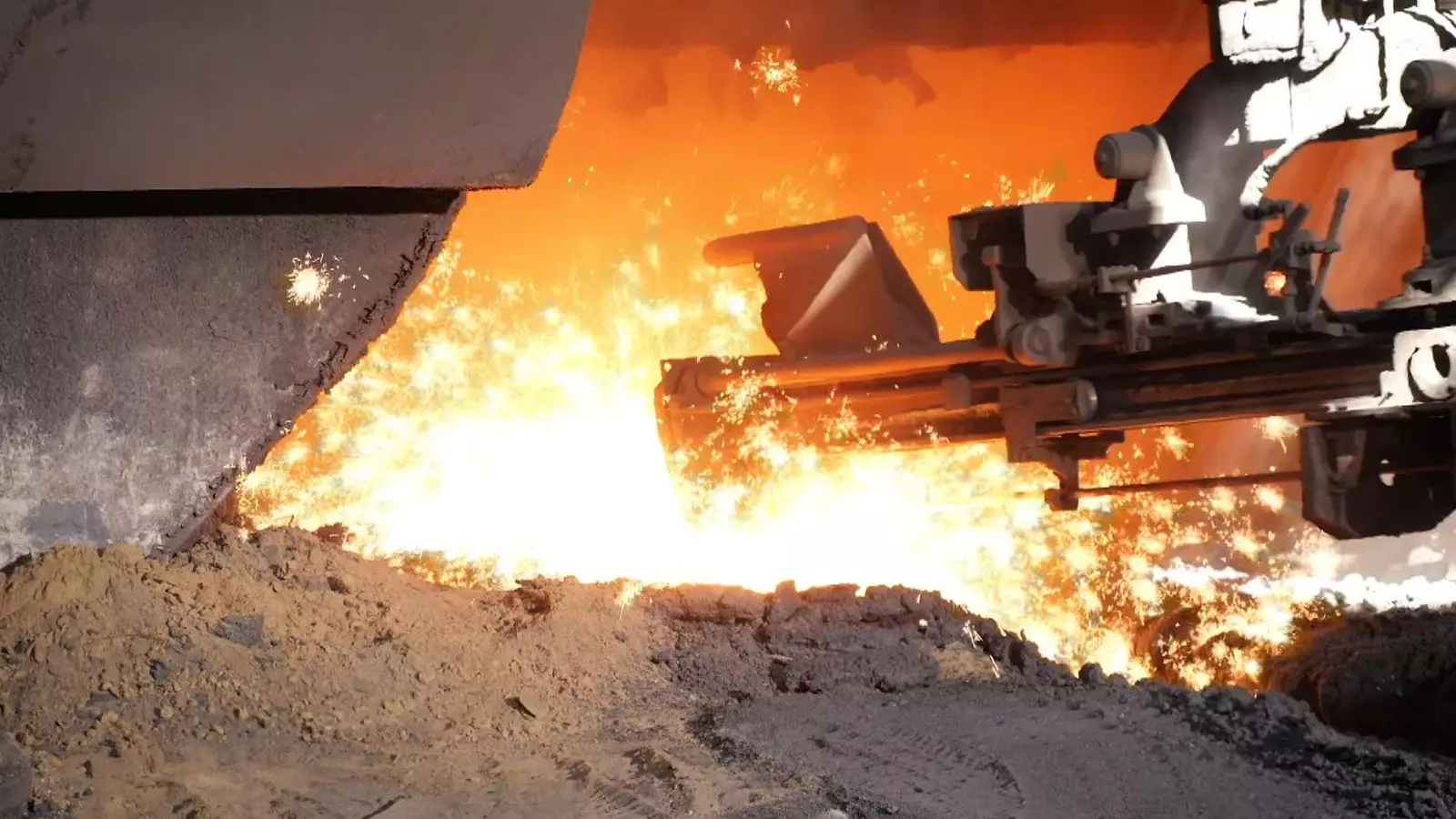The steel industry in the UK faced a critical juncture as the last operating blast furnaces hang precariously in the balance. Chinese ownership of British Steel in Scunthorpe, managed by Jingye Group, has plunged the country’s manufacturing future into uncertainty. The recent decision to cut off supplies of vital raw materials—including iron ore and coal—raises alarm bells for not only the workers in Scunthorpe but also for the entire UK economy. The implications of shutting down these furnaces are staggering; they represent the last domestic sources capable of producing virgin steel. This isn’t merely a local issue—it is a harbinger of broader manufacturing crises that could soon rock the nation.
The fact that the very essence of Britain’s industrial identity is at stake is more than troubling; it signifies a turn back to dependency on imports for a resource that is fundamental to infrastructure. The collapse of local steel production will thrust the UK deeper into reliance on foreign markets, making the nation vulnerable to fluctuations in supply and price, inevitably leading to further economic turmoil.
Negotiations and Their Discontents
Negotiations have become an arena of inaction, rendered ineffective by divergent interests between the Chinese owners and the British government. The government’s generous offer of £500 million to transition from blast furnaces to electric arc furnaces—a move in line with global carbon reduction goals—was seen as insufficient by Jingye. They argue that this sum is too little to warrant any additional investment in Scunthorpe, leading to a breakdown in talks.
For the government, this is more than just an economic issue; it’s a question of national sovereignty. The prospect of nationalizing the site, once a cornerstone of Britain’s industrial prowess, involves complex legal and financial considerations that political leaders appear reluctant to tackle. The fear of potentially opening the taxpayer wallet for an unviable entity compounds an already complex scenario.
In a climate charged with geopolitical strife, especially as tensions simmer across the Atlantic, the call for a strategically secure manufacturing sector has never been more critical. The looming threat of a trade war underlines the necessity for the UK to bolster its own infrastructure, and yet this essential step is obstructed by the intransigence of foreign ownership.
Steel and the Bigger Picture
Even as the immediate prospects for British Steel dim, the crisis serves as an illuminating case study on the lessons learned from decades of deindustrialization and the pitfalls of outsourcing vital industries. For years, Britain has watched its manufacturing base erode, trading self-sufficiency for expediency and lower costs. Now the repercussions of this ideological misstep illustrate the perils of economic policy shaped by incomplete assessments of global dynamics and the essential need for local production facilities.
The repercussions go beyond the factory floors: they ripple throughout the interconnected fabric of communities dependent on stable employment in steel production. When the furnaces snuff out their flames, the repercussions will resonate deeply within local economies, triggering unemployment, reduced consumer spending, and community disintegration.
The Path Forward: A Call to Action
Urgent action is necessary to avert a manufacturing crisis that could send shockwaves through the UK’s economy. Steel has historically been the backbone of industrial power, and its depletion threatens to unravel decades of economic progress. Stakeholders must explore all avenues—including public investment, review of foreign ownership policies, and emphatic dialogue with labor unions— to develop a sustainable and resilient industry.
In the face of this impending disaster, it is imperative that we reassess the priorities guiding the UK’s economic landscape. Breadth and depth in manufacturing are not merely an option for economic prosperity but rather a necessity for national security. As the geopolitical climate shifts, the UK must forge a future that ensures viable, locally-grown industries thrive, enabling the nation to reclaim its steel heritage and bolster its economic foundations.
This is not just about steel; it’s about the future of the UK itself, a clarion call to revive the spirit of community and enterprise that once defined an industrious nation. The clock is ticking; Britain must act before its steel industry becomes a mere footnote in its storied history.


Leave a Reply